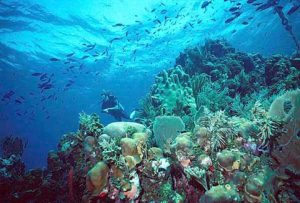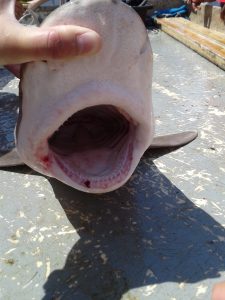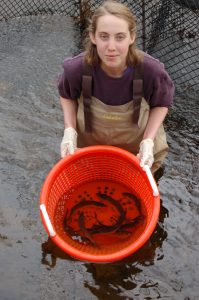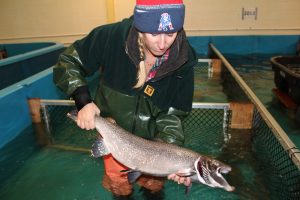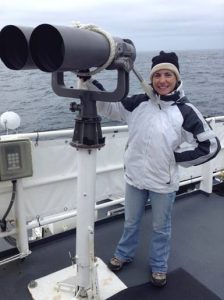Dive In and Explore Coral Reef Ecosystems
Dana Wusinich-Mendez, NOAA’s Coral Reef Conservation Program in West Palm Beach, FL Coral reefs are the rainforests of the ocean. They are beautiful, diverse, and extremely important for healthy ocean ecosystems and strong communities. Learn all about coral reef ecosystems, why they matter, and what you can do to help them. (Grades 2-6 but all…
Read MoreSharks Make Sense
Chris Flight, NOAA’s Mississippi-Alabama Sea Grant Consortium at the Dauphin Island Sea Lab in Dauphin Island, AL Sharks are some of the most successful predators in the ocean. There are hundreds of different species that come in all sorts of shapes and sizes. Have you ever wondered what makes them so good at what they…
Read MoreSwimming Upstream with River Herring
with Abigail Archer, NOAA’s Woods Hole Sea Grant and Cape Cod Cooperative Extension in Barnstable, MA Most fish live only in freshwater or only in saltwater, but some special fish can swim back and forth between both! How do they do it? Why do they do it? Tune in to learn the answers and meet…
Read MoreLeaping for Atlantic salmon: Protecting endangered species
Sarah Bailey, NOAA’s Greater Atlantic Regional Fisheries Office in Orono, ME Once found as far south as Long Island Sound, today only the state of Maine still has wild runs of endangered Atlantic salmon. In Orono, Maine, NOAA Fisheries has a collection of Researchers, Engineers, and Managers that all work toward saving these fish and…
Read MoreAlaska Week: Flying Beneath the Clouds at the Edge of the World
Katie Sweeney, NOAA’s Marine Mammal Lab in the Alaska Fisheries Science Center in Seattle, WA Do you have a toy drone at home? Join in to learn about how the Marine Mammal Lab is using drones for learning more about wildlife. The Alaska Ecosystem Program studies Steller sea lions in Alaska using drones and we’re…
Read MoreCan You Hear Me Now? Marine Mammals and Sound
Genevieve Davis, NOAA’s Northeast Fisheries Science Center in Woods Hole, MA Have you ever wondered what a humpback whale sounds like? How dolphins communicate? Learn from a member of our bioacoustics team about how sound travels through the ocean, what makes underwater sounds and how we listen in. Discover why marine mammals make sound and…
Read MoreA Bird’s Eye View of Whales
Allison Henry, NOAA’s Northeast Fisheries Science Center in Woods Hole, MA Whales are among the largest and oldest animals on earth and belong to a group of marine mammals called cetaceans. Talk to a member of NOAA’s North Atlantic right whale aerial survey team and learn how they do science from the sky. (Grades 2-6)…
Read More
